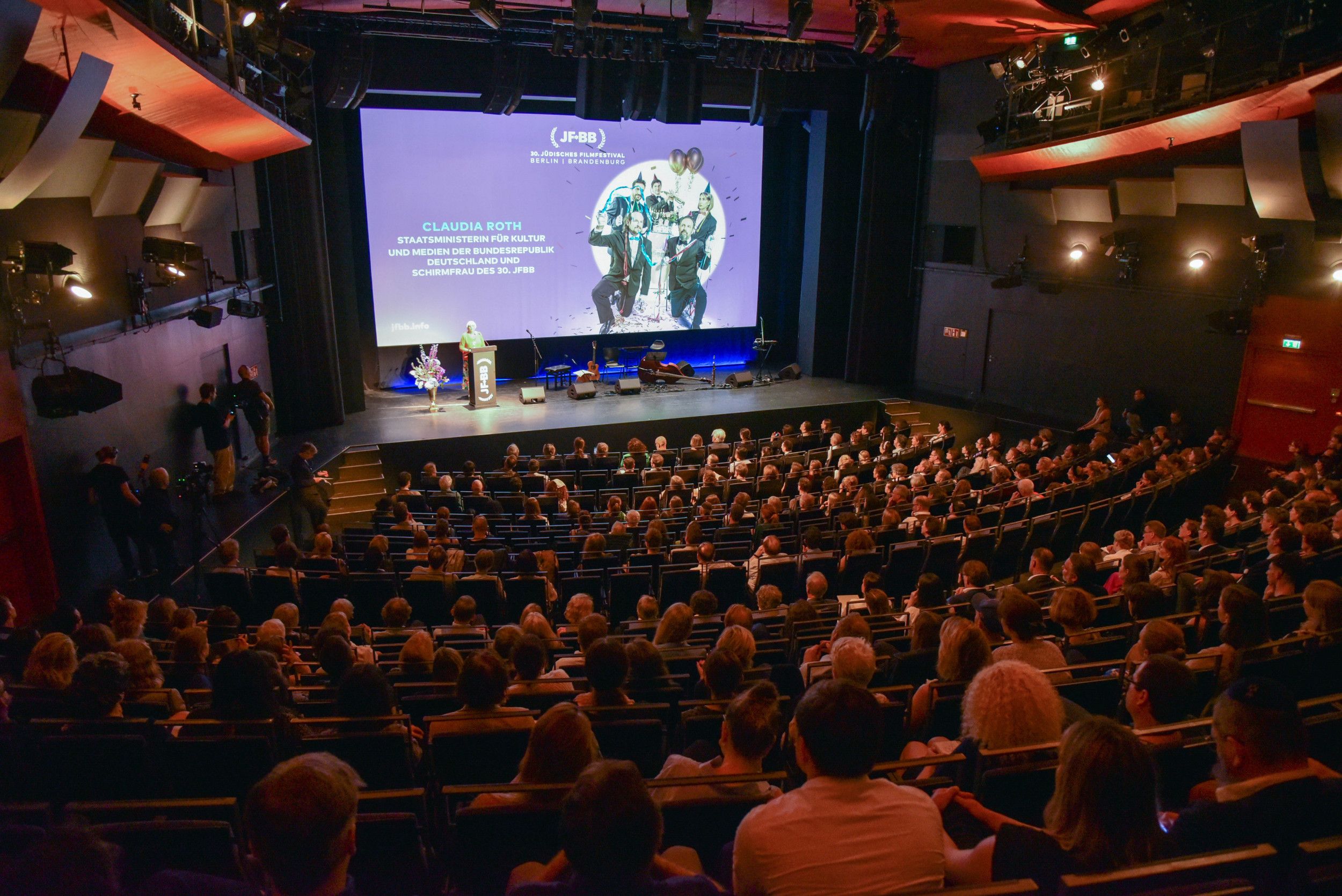The Jewish Film Festival Berlin Brandenburg (JFBB) is the largest Jewish film festival in Germany. For six days, international films of all genres are shown, from arthouse films to blockbusters, from historical observations to family comedies.
The festival highlights Jewish history, present and future. In addition, the festival has the mission to keep the memory of the Shoah alive, to convey historical awareness and to counteract anti-Semitic attitude patterns. The JFBB shows about 50 films in two competitions for feature and documentary films, thematic special sections and a tribute. It takes place annually in May in Berlin, Potsdam and other locations in the state of Brandenburg .
The 32nd JFBB will take place from May 5th to May 10th, 2026.
Background of the Jewish Film Festival Berlin and Brandenburg
The Jewish Film Festival Berlin and Brandenburg was founded in 1995 by Nicola Galliner, then as part of the cultural work of the Jewish Community of Berlin, and was successfully headed by her until 2020. Since then, the JFBB has developed into the largest German festival with Jewish-themed films and films from Israel. Since the beginning of 2021, the JFBB has been in the hands of Doreen Goethe and Andreas Stein, who enjoy an excellent reputation in the industry as organizers of one of the world's leading festivals of Eastern European film, the FilmFestival Cottbus.
Organizing a Jewish film festival in Berlin and Brandenburg, the region where the Shoa was planned and organized, was and is associated with a special responsibility, which we as the entire JFBB team try to live up to.
But what actually makes a film a Jewish film?
This topic has also moved the Jewish Film Festival Berlin and Brandenburg since its founding. Publicist Henryk M. Broder answered it in his usual pointed way in the commemorative publication for the tenth anniversary of the Jewish Film Festival Berlin (Galliner, Nicola: Jewish Film Festival Berlin. Die ersten 10 Jahre, bebra, 2004):
"Everything that is not boring is Jewish. Because, contrary to all prejudices, there is only one area in which Jews do indeed dominate. It is not banking, not the stock market, not the game of billiards. It is entertainment, show business. ... So what makes a Jewish film? The same thing that makes a Jewish book or Jewish music. It doesn't bore. No sooner has it begun than it's over. There are 60, 120 or 180 minutes between the beginning and the end, but it's only the perceived time that matters. If it's more than ten minutes, then it's not a Jewish film."





